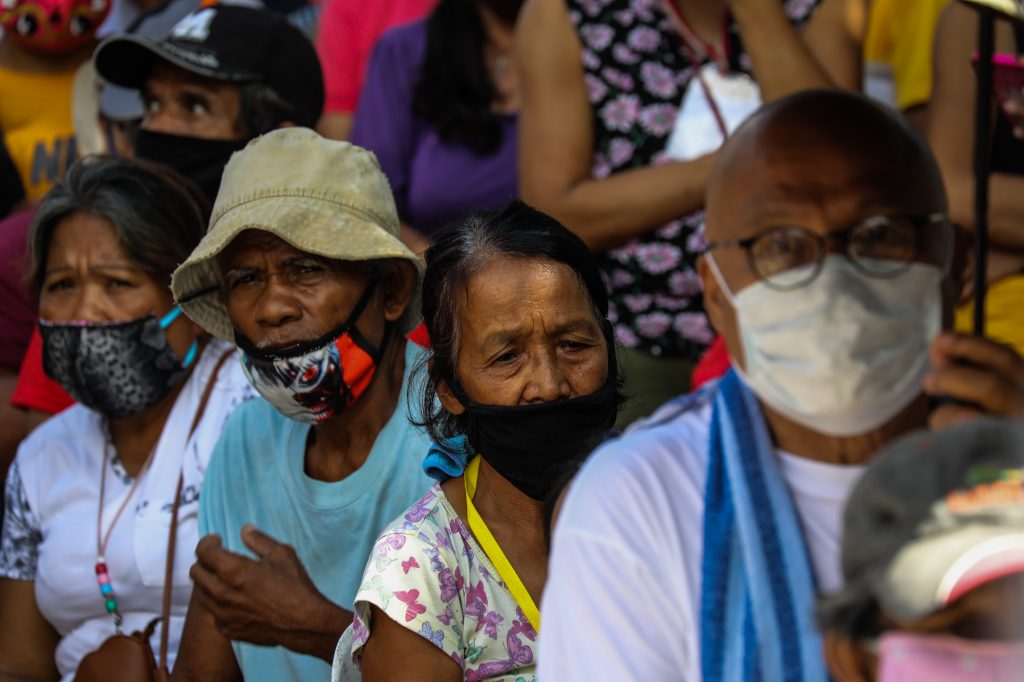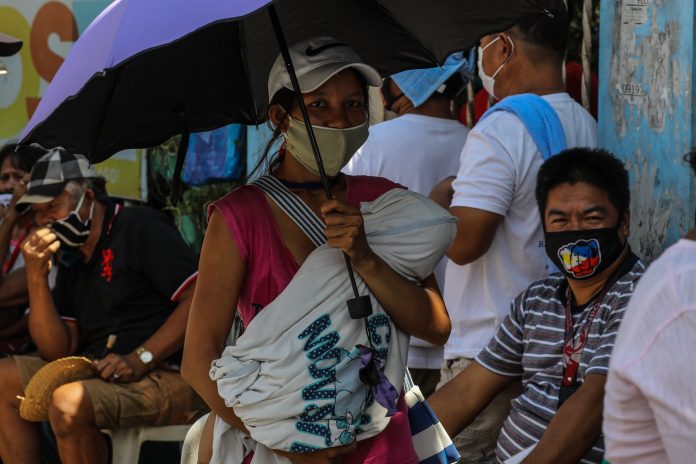The coronavirus pandemic continues to spread and claim the lives of thousands around the world, resulting in immeasurable sufferings among the people.
In the Philippines, which is imposing the longest lockdown in the world and where mass testing is absent, the number of cases of infections is still rising.
To the poor, the pandemic signifies joblessness, hunger, homelessness, separation from loved ones, and even the absence of proper burial of the dead.
There are countless heartbreaking stories.
After queuing under the scorching heat of the sun for government aid but without getting anything, Lolito Ferrer, 59, died of heat stroke in the town of Dumanjug in the central Philippines.
Fearing uncertainty, a 28-year old Filipino nurse awaiting repatriation to the Philippines committed suicide.
During the lockdown, many people were stranded with no place to stay and no food to eat. People living under the bridge, the impoverished sick and the elderly experienced even more hunger.
Detainees in congested jails have to endure the risk of infections as many of their inmates tested positive of the disease.
Public transport drivers beg for help as they lose income due to the long quarantine period.
The dark night seems endless. It is even obscured by human rights violations, including the killing of a 63-year old farmer in Mindanao for refusal to wear a face mask.
President Rodrigo Duterte, in an impromptu address to the nation, said his orders to the police and military were “if there is trouble or the situation arises where your life is on the line, shoot them dead.”
“Understand? Dead. I’ll send you to the grave. Don’t test the government,” he said.
The Philippine situation speaks millions of how a government miserably failed the people it swore to serve.
How long can people endure such agony?

Heartwarming it is to know that church people are making themselves relevant to the signs of the times in many different ways.
“Give us the grace in this trying times to work for the good of all and to help others in need,” prayed Catholic nun Perry Enso.
She reckoned that the “Oratio Imperata,” or mandatory prayer, has moved the hearts of many “to do what they can to help the neediest of our brothers and sisters.”
Thus, she did not hesitate to coordinate a “Free Kitchen” with other Cenacle nuns in Cebu. The sisters supervised three “Free Kitchens” in the villages of Kalubihan, Banawa, and Inayawan.
From generous donations, food was prepared by volunteers who brought them to elderly and children.
“What I found difficult and heartbreaking was the experience of bringing the cooked food to the houses of [the elderly] and being confronted with the stark poverty of their homes,” the nun said.
She said she has been in the area several times in the past, but not in the houses of the elderly in the middle of a muddy dump.
The Holy Family of Bordeaux congregation wanted “to save lives, care for people, feed the hungry” during the pandemic. The nuns feed people in remote villages three times a week and distribute relief goods.
In Quezon City in the Philippine capital, several parishes and church institutions offered food and shelter to the poor.
These are just few examples of how church people “concretized corporal acts of mercy” during the pandemic “as witnesses and bearers of the Lord’s mercy and compassion.”
They have lightened the heavy hearts of God’s little ones in this time of dire necessity.
Having fed the hungry, given drinks to the thirsty, clothed the naked, sheltered the homeless, church people have realized the Gospel imperative of serving the “least of His brethren.”
They have concretized the corporal works of mercy.
As Pope Francis said in a written meditation titled “A Plan to Resurrect,” the only way to conquer the coronavirus is through the “antibodies of justice, charity and solidarity.”
Mary Aileen D. Bacalso is former secretary general of the Asian Federation Against Involuntary Disappearances. For her work against enforced disappearances, she was awarded the 2019 Franco-German Ministerial Prize for Human Rights and the Rule of Law. In 2013, the Argentinian Government awarded her the Emilio F. Mignone International Human Rights Prize.









